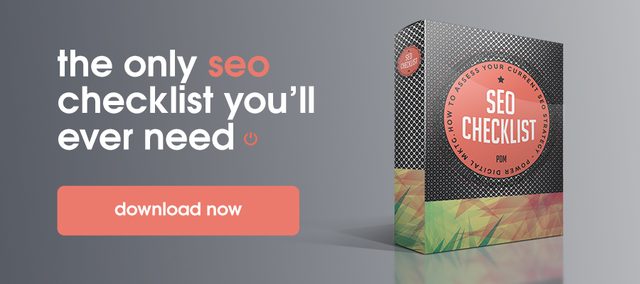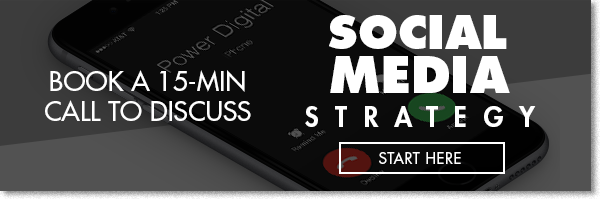Social Signals and SEO: What’s the Relationship?
The impact of social signals on SEO is a hot topic in the world of Digital Marketing. It has been for years now and likely won’t slow down. There’s been a lot of industry research studying the relationship between social signals and organic search, and here at Power Digital we’ve been asked the question “are social signals actually an SEO ranking factor” quite a few times. So, are they? Well that answer, like many within the complicated SEO world, is kind of complicated. While the technical answer from Google (i.e. Google employees) may be “no, social signals are not an SEO ranking factor” the short answer most SEO experts will give you is yes. Let’s discuss why this is.
According to Google
If Google would give away the secret to their search ranking algorithm our lives as SEO experts would be a whole lot easier. But since that’s not likely to happen anytime soon, we have to digest and analyze the word of people like Matt Cutts (former head of Web Spam at Google) and Gary Illyes (Google Webmaster Trends Analyst). And what have they said? Well they actually say that social signals are not a direct SEO ranking factor. But what Google employees do state is that links shared on Facebook and Twitter are.
In this video from early 2014, Matt Cutts says “Facebook and Twitter pages are treated like any other pages in our web index… as far as doing special specific work to sort of say oh you have this many followers on Twitter or this many likes on Facebook, to the best of my knowledge we don’t currently have any signals like that in our web search ranking algorithms.” Then in 2016, Gary Illyes, a Google Webmaster Trends Analyst, was asked publically if Google takes social into account for SEO and he tweeted the Cutts video and said they do not. But, what digital marketers should take away from Cutts’ statement is that Google does treat pages on social like any other pages in Google’s index. So if your site’s pages are frequently shared on social, it’s comparable to getting external backlinks from other external sources.
According to Industry Studies
Here at Power Digital we think the best digital marketers are those who let data tell the story. And what that boils down to are digital marketing tactics backed by data and research.
So, just because Google said that social isn’t a direct ranking factor doesn’t mean that social doesn’t impact rankings or that social should not be a piece of an SEO campaign.
A study by Hootsuite has shown clear correlations between social activity and rankings, both looking at organic posts and promoted posts. So while you don’t have to put budget behind your Facebook or Instagram posts, doing so can have a positive impact for your brand. What’s more, the study also shows a positive relationship between total number of social engagements and organic rank change. So not only is it beneficial to share your content on social, but as most marketers would think, lots of engagement from your social audiences can lead to even better performance.
Main Takeaways
So what are the main takeaways you should be keeping in mind when it comes to Social and SEO?
- Leverage your high quality content for social media to help your organic rankings. This doesn’t only mean sharing your latest blog posts! This can be sharing videos, interactive content such as quizzes and buying guides, your user-generated review content, etc.
- Considering paid promotion of content can also be beneficial. If you have some budget you can utilize to help get more eyes on your content or more engagement, go ahead and boost your posts!
- Make sure you are conducting ongoing tests to see which content forms (i.e. blog, video, quiz) and topics tend to get the most engagement on social, as social engagement has also shown to correlate with organic rankings increases. But remember, Facebook as of late is discouraging brands to come straight out and ask for likes, shared and comments, so make sure you’re avoiding that and relying on organic engagement.
Helpful Tools for Social & SEO Strategy Integration
We believe the best digital marketing tactics are those backed by data and research. Yes, it sounds obvious, but it’s shocking to see how many brands do whatever happens to feel fun or trendy at the moment. So as you plan out your SEO and Social integration strategy, remember to leverage data and tools to help shape that strategy. If you’re looking for some agency-backed tools that you can leverage to help plan and measure the impact of Social and SEO integration, look no further!
Related: 10 Must Have Marketing Tools in 2018
- BrightEdge: BrightEdge is one of the most robust and popular platforms for SEO, and they were actually the first to integrate social signals into their content performance platform. BrightEdge boats providing marketers with actionable insights they can optimize their campaigns across their website,organic search, and social channels with for maximum cross-channel results.
- BuzzSumo: BuzzSumo is a way to analyze what content performs best for any topic or brand. With BuzzSumo, not only can you gain a data backed understanding of which content is resonating well around certain topics and audiences, but you can also use the tool to get a deeper understanding of your own brand’s social footprint.
- nTuitive.social: This social media suite allows you to track the performance of your social profiles, website, blog, and more. It also allows you to track social mentions of specific keywords. nTuitive then aggregates data from your social channels and downloads it into a simple and easy to use dashboard that will allow you to make data backed decisions on your social strategy.



















